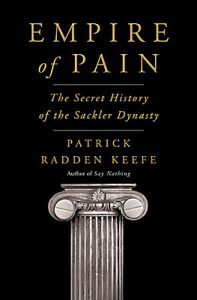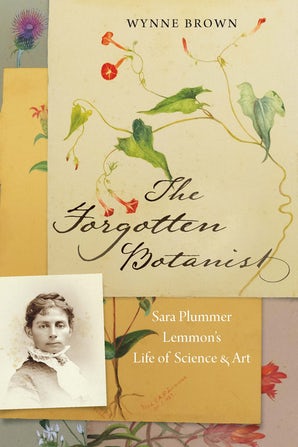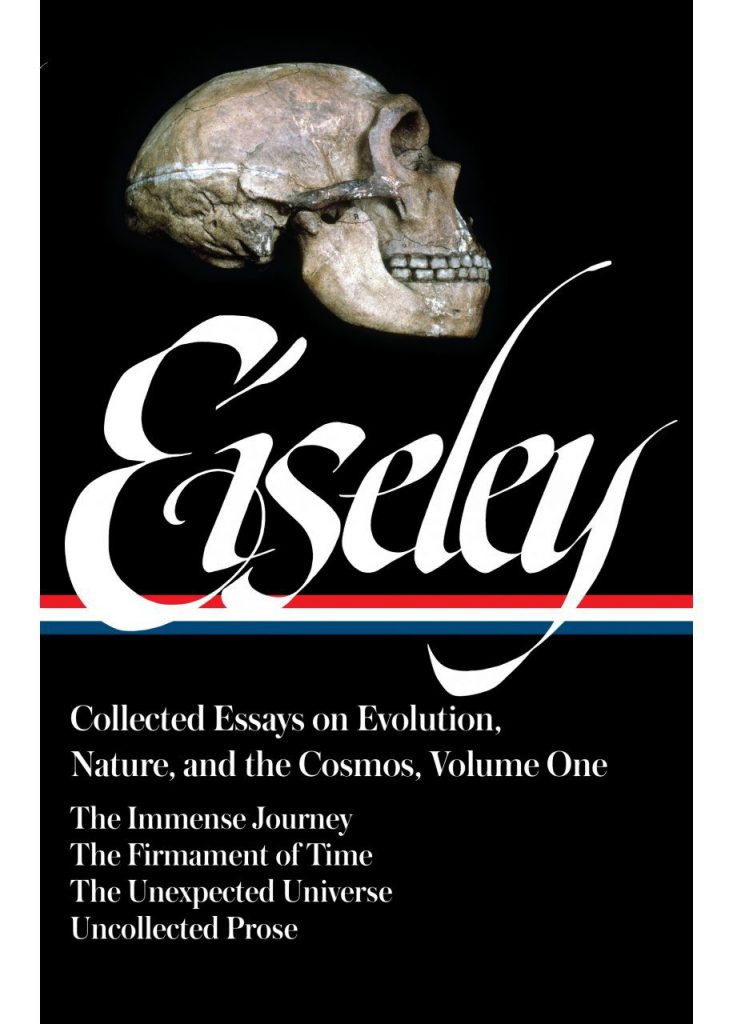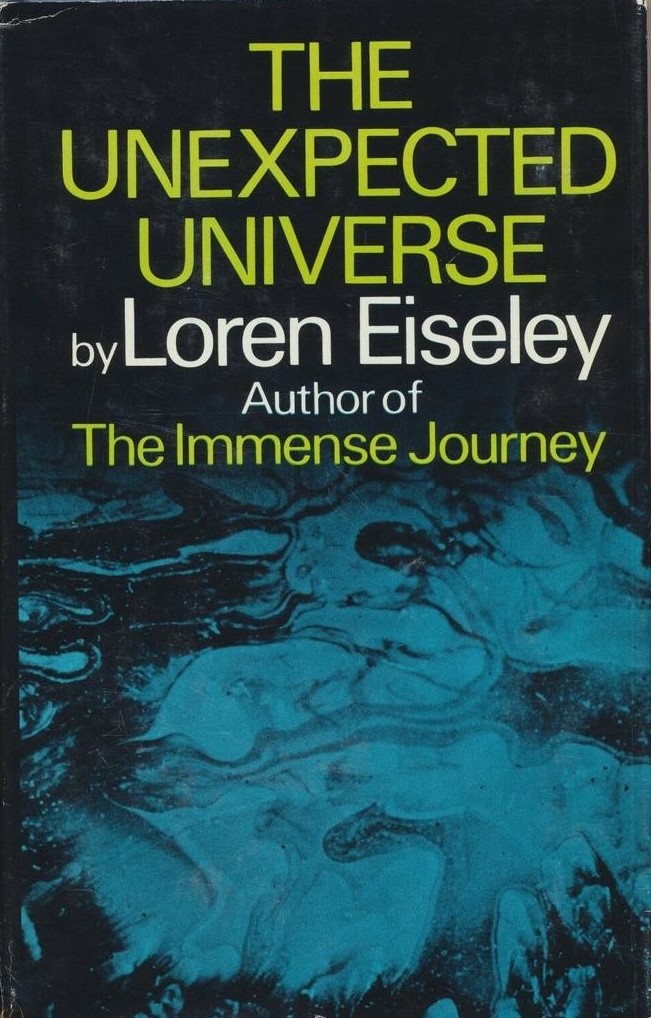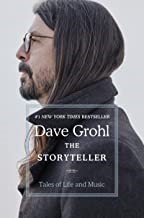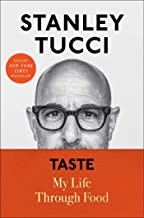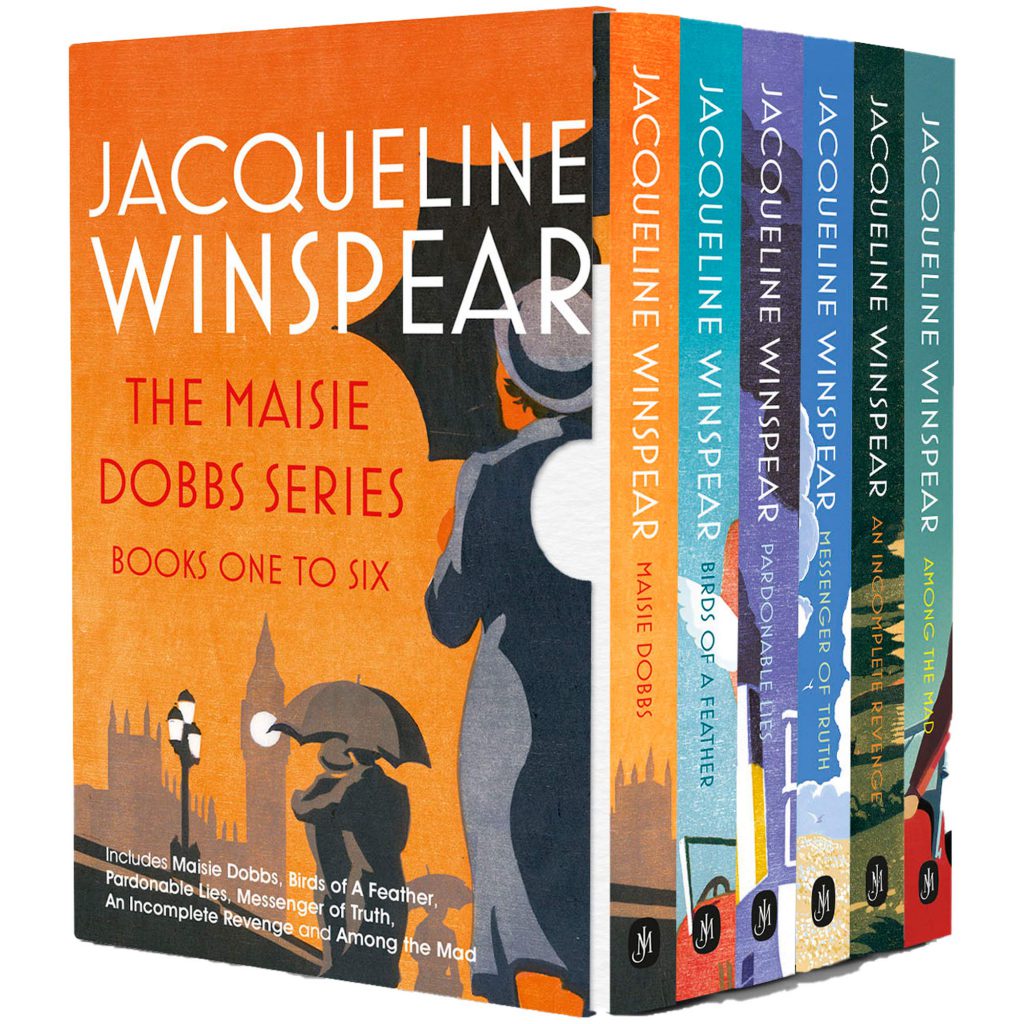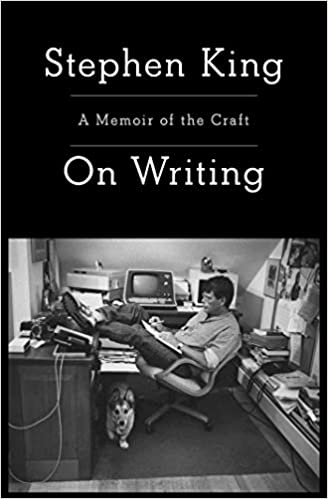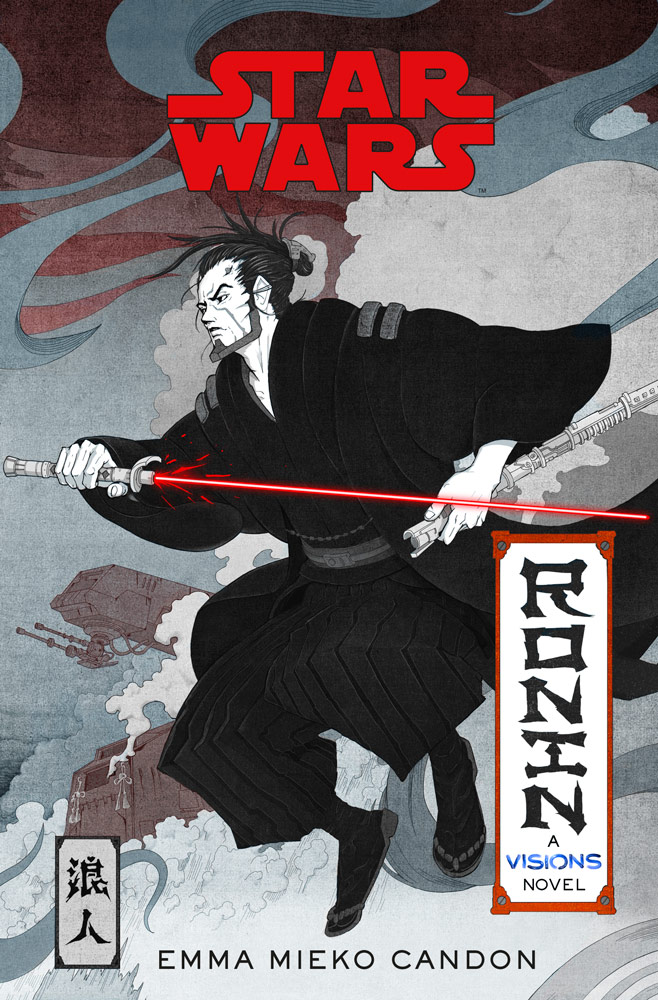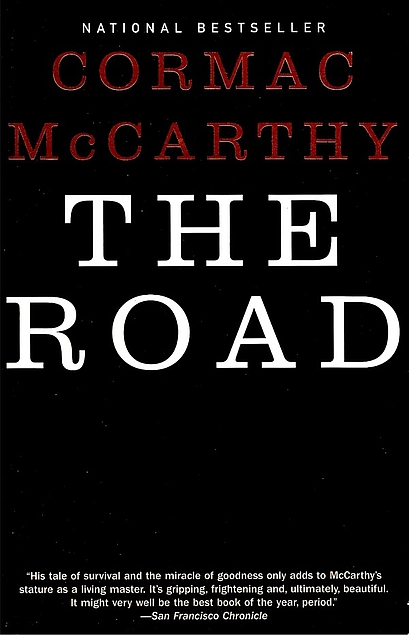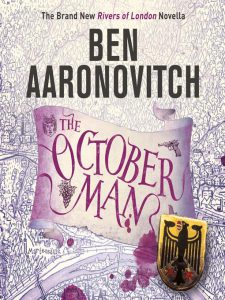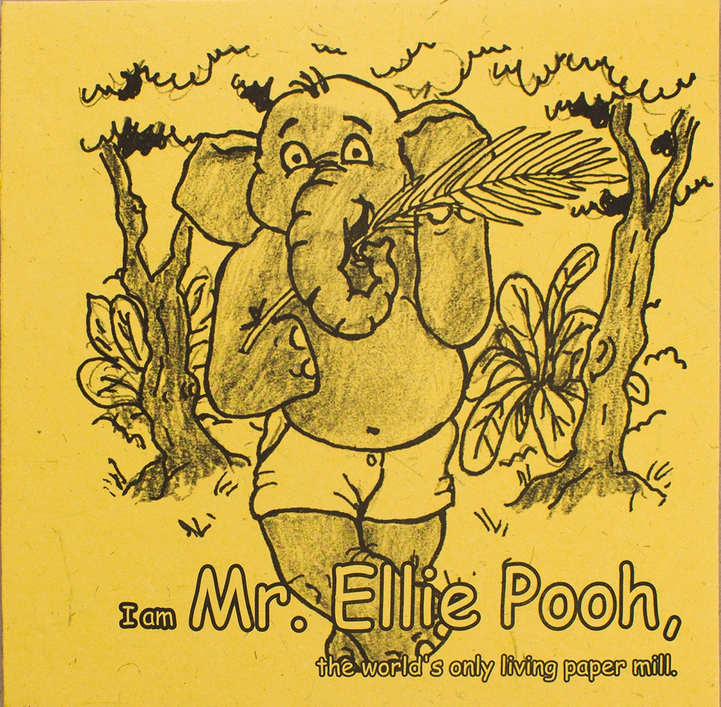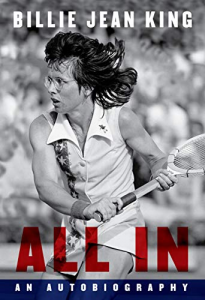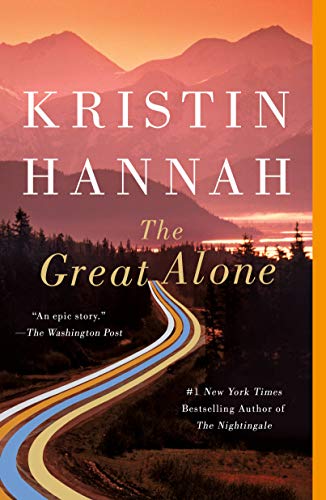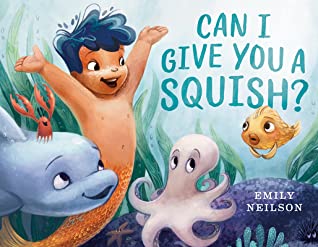Search the Blog
Categories
- Books & Reading
- Broadband Buzz
- Census
- Education & Training
- General
- Grants
- Information Resources
- Library Management
- Nebraska Center for the Book
- Nebraska Memories
- Now hiring @ your library
- Preservation
- Pretty Sweet Tech
- Programming
- Public Library Boards of Trustees
- Public Relations
- Talking Book & Braille Service (TBBS)
- Technology
- Uncategorized
- What's Up Doc / Govdocs
- Youth Services
Archives
Subscribe
Tag Archives: Friday Reads
Friday Reads: The House in the Cerulean Sea” by T.J. Klune
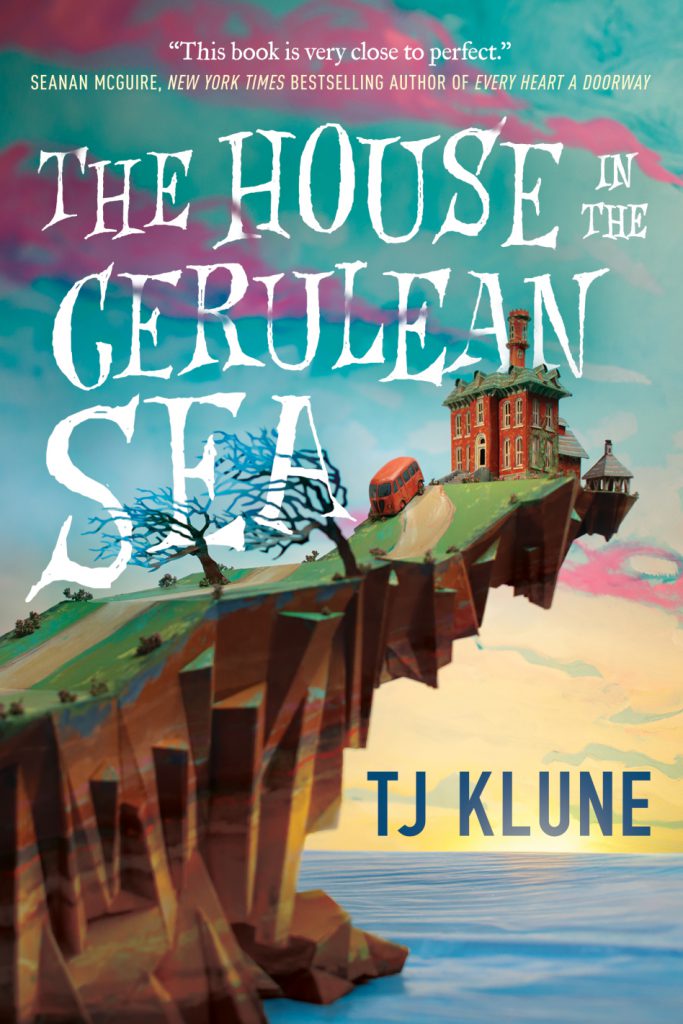
I’ve probably said it before but if you’re anything like me reading has recently become kind of a chore. After recently getting a dedicated e-reader the total volume of my reading has increased, just from the sheer volume of titles now available to me at the click of a button, but I was still having a hard time finding a book that I thought deserved particular attention. That is until I found this week’s book.
“The House in the Cerulean Sea” is the sweetest little novel, and a surprisingly quick read, written by T.J. Klune. It takes place in a fantasy world, not unlike earth, that follows the life of one Linus Baker, a caseworker for the Department In Charge of Magical Youth. At DICOMY his job is to evaluate the orphanages the department runs when situations arise, including the facilities and the masters in charge of each one. Although not uncaring Linus is proud of his ability to do his work by the book, literally a 900+ page volume entitled “Rules and Regulations” that he purchased from the company and lugs with him wherever he goes. It is because of this attention to the rules that Linus is given a special assignment by Extremely Upper Management to evaluate one of their more extraordinary orphanages.
An orphaned gnome, who keeps the most beautiful garden, and a shy young man who, when overtaken by extreme anxiety, turns into a Pomeranian are just a few of the children that give this orphanage its life and color, a very different setting than Linus’s usual drab gray life. Over the month that Linus has been given to evaluate the home, he is confronted with how living by the book can not only be restrictive of life and all it has to offer but may end up being detrimental, too.
If you’re looking for a cozy read that makes you think a bit “The House in the Cerulean Sea” fits the bill perfectly. I’ve heard good things about his most recent book “Under the Whispering Door” and it’s now on the top of my to-be-read book pile. Could this mark the end of my reading slump?
Klune, T.J. The House in the Cerulean Sea. New York: Tor, 2020.
Friday Reads: Empire of Pain: The Secret History of the Sackler Dynasty, by Patrick Radden Keefe
Patrick Radden Keefe’s latest book, Empire of Pain, released on April 12, 2021, is a timely account of three generations of the Sackler family and the role they’ve played in the ongoing opioid crisis. It starts out as a classic American rags-to-riches story–three entrepreneurial brothers, born to poor immigrant parents in Brooklyn in the early 20th century, who succeed beyond their wildest dreams, winding up as billionaire philanthropists. It also tells a darker tale of corporate greed, coupled with personal hubris, leading to devastating social consequences.
Most of us know a bit about the Sacklers, due to media coverage of the multiple lawsuits filed against their privately owned company, Purdue Pharma, which manufactures and markets OxyContin. Purdue Pharma introduced this highly addictive extended-release painkiller to the market in 1996, and it was a game changer. Indeed, many view its arrival on the scene as the most significant precipitating event leading to the now-decades-long opioid epidemic.
If you want to know more, Keefe’s extensively researched book provides compelling evidence of why this family and their pharmaceutical company are viewed as culpable. And sadly, it feels like a too-familiar narrative:
- There’s the FDA employee who, shortly after overseeing approval of OxyContin, wound up accepting a well-paid position with Purdue Pharma.
- There’s the misleading marketing strategy of touting OxyContin as less addictive and less prone to abuse because of its time-release coating, even though company insiders knew from monitoring online discussion groups that users were crushing and chewing the drug to get a bigger “hit.”
- There’s the sales force that continued to call on and sell to doctors who were clearly running pill mills, because of unending pressure to increase revenue.
- And finally, there is the pathological refusal of family members to accept any responsibility for the problems that proliferated in conjunction with OxyContin sales. They seemed to view reports of OxyContin-related addiction and overdose deaths as PR problems that unfairly sullied the reputation of Purdue’s prized product, not as human tragedies: Addicts were the victimizers and Purdue Pharma and the Sacklers were the victims.
If you’re a fan of corporate exposes, this book will be right down your alley. It would also be a good companion read if you are watching the limited series Dopesick, now streaming on Hulu.
Keefe, Patrick Radden. Empire of Pain: The Secret History of the Sackler Dynasty. New York: Doubleday, 2021.
Friday Reads: The Forgotten Botanist : Sara Plummer Lemmon’s Life of Science and Art
Every once in awhile, a book comes along that, even though it is non-fiction, is so well written that it reads like a novel. The Forgotten Botanist : Sara Plummer Lemmon’s Life of Science and Art, by Wynne Brown, is just such a book. I was drawn in immediately by Ms. Brown’s eye for detail and well written narrative of Sara Plummer Lemmon’s life, loves, and scientific contributions to the field of botany.
The Forgotten Botanist is the story of an extraordinary woman who, in 1870, was driven by ill health to leave the East Coast for a new life in the West—alone. At thirty-three, Sara Plummer relocated to Santa Barbara, where she established the town’s first library and taught herself botany. Ten years later she married botanist John Gill Lemmon, and together the two discovered hundreds of new plant species, many of them illustrated by Sara, an accomplished artist. Although she became an acknowledged botanical expert and lecturer, Sara’s considerable contributions to scientific knowledge were credited merely as “J.G. Lemmon & wife.”
The Forgotten Botanist chronicles Sara’s remarkable life, in which she and JG found new plant species in Arizona, California, Oregon, and Mexico and traveled throughout the Southwest with such friends as John Muir and Clara Barton. Sara also found time to work as a journalist and as an activist in women’s suffrage and forest conservation.
The Forgotten Botanist is a timeless tale about a woman who discovered who she was by leaving everything behind. Her inspiring story is one of resilience, determination, and courage—and is as relevant to our nation today as it was in her own time.
*Courtesy of University of Nebraska Press
Posted in Books & Reading, General, Information Resources, What's Up Doc / Govdocs
Tagged Friday Reads
Leave a comment
Friday Reads: The Unexpected Universe, by Loren Eiseley
If a Mount Rushmore of Nebraska literary figures were ever to be carved into the Dakota sandstone through which Lincoln’s Salt Creek flows, the bespectacled visage of Loren Eiseley would have to be considered for inclusion. Eiseley (1907 – 1977), a renowned paleontologist, anthropologist, poet, and science writer, was born in Lincoln and spent his formative years here (his early childhood home on South Street still stands and there is a Lincoln City Libraries branch named after him), establishing a lifelong pattern of wandering widely, often alone, and investigating what nature revealed to him.
Eiseley is a compelling writer because his interpretation of these clues is always an amalgam of hard science knowledge, compassionate humanism, and a sort of stoic poetry that often seems to stop just short of surrendering to the void. This is particularly true of the ten essays that comprise his 1969 book, The Unexpected Universe. Each essay is a set piece built around some image or experience that has profoundly affected Eiseley, and he spends the essay turning his scientific eye inward — examining his own emotional strata and why he is, to use modern parlance, so “shook” — and outward, drawing upon a classical set of allusions that include Plato, Shakespeare, Darwin, Emerson, Thoreau and others to frame the piece in context for the reader.
Similar to the transcendentalist modes of Thoreau and Emerson, being alive in human form is ultimately a cosmic mystery for Eiseley, and life is a quest for meaning. These essays suggest that this meaning or understanding tends to emerge in coded disguise, such as the letter-like markings of an alphabet shell, a suddenly recalled memory of a “junkman” and his horse-drawn cart at the corner of R and 13th in 1923, or a giant cecropia moth that invades an outdoor theatrical play staged under the lights. These sparks of connection with the rest of the universe are fleeting, leaving the author perhaps even more alone than he realized before.
In this sense, The Unexpected Universe is truly a product of its cultural-historical moment in the late 1960s, the same zeitgeist that infuses Stanley Kubrick’s 2001: A Space Odyssey, created right before human beings placed one of our own on the moon on July 21, 1969. After decades of sci-fi pulp fiction speculation about encountering other intelligent life forms on other planets, the reality of the vast emptiness of outer space and the lonely human position within it became more apparent.
The evolutionary anthropologist Eiseley reminds us that it was always so. However, within matter there is solid-arity: throughout the book he imbues most every living thing and once-living thing with the mythopoeic quest of Odysseus, at one point even lamenting individual blood cells reaching their adventure’s end as they pool below his head after a fall. Reading Eiseley is an exercise in heightened awareness of the microcosmic, macrocosmic, and long geologic history of the earth that offers a renewed sense of how special it is to be alive in this moment.
Eiseley, Loren C. The Unexpected Universe. San Diego: Harcourt Brace & Company, 1994.
Friday Reads: Celebrating Jolabokaflod
Jolabokaflod, or “Christmas Book Flood” in English, is the Icelandic tradition of giving books on Christmas Eve and reading into the night. Here are two books I am gifting my friends Vern and Jon for their Christmas Eve reading.
Vern was born the same day and year as Stanley Tucci and honestly, there are some passages in Taste that make me believe there could be something to birthday twins being similar. Vern’s husband Jon is a huge Foo Fighters fan, and all the press Dave Grohl’s book, The Storyteller, received made me curious to learn more about this musician’s life. I think it is helpful (mandatory?) to read a book before you gift it because giving books can be a burden to the recipient — if you don’t believe in the book, why should they? I’m pretty certain I have a sure thing with both titles.
For those who aren’t familiar with Stanley Tucci, he became an internet sensation this past spring for his viral instructional video on mixing a negroni which is, incidentally, the very first recipe in his book. The recipe concludes with the following instructions: sit down, drink it, declaring, “the sun is now in your stomach.” Tucci’s book is a memoir through the lens of food. There are chapters on his Italian parents and their traditions; the family’s year spent living in Italy; restaurants and life in New York as a young actor; food on several film sets and locations; food with his wife, Kate; life in London with his wife, Felicity; and surviving tongue cancer. This book also complements the CNN Series Stanley Tucci: Searching for Italy, which aired earlier this year and is still available for viewing on demand if you missed it the first time around. And good news, there is confirmation of season two!
I devoured this book, and knowing I would be sharing it with Vern I consumed it with anticipatory glee, imagining his reactions. And even though I listened to Tucci narrate the audio edition of his book, I used post it notes to mark certain passages in Vern’s print edition that I hoped would stand out. I predict the New York chapter and the Meryl Streep Julie and Julia chapter will be favorites. I read a review of this audiobook that said “listening to this memoir is not a completely successful experience,” but in my opinion that reviewer is simply wrong. While it’s nice to have the recipes in print, listening to Tucci speak Italian and curse makes the audio preferable to me. During the pandemic, armchair travel was all many of us could do, and if Italy is on your list? Get Tucci’s book, watch his series, boil some pasta, and you’ll be halfway to celebrating la dolce vita!
As a former musician, I found Grohl’s process of coming to music as a vocation fascinating. Like the Beatles and my personal favorite, James Taylor, Grohl never learned to read music. Dave taught himself to play by fastidiously listening to music and literally making the drum sounds with his teeth, leading his dentist to wonder what caused his early dental deterioration. Because he couldn’t rely on written music, there was a memorization that made the music a part of him. He does admit to taking one drum lesson where he was told he was holding his sticks wrong, but that was his only formal education. Grohl also described how he experienced music through synesthesia – a process when hearing music makes you see shapes or smell something specific. It is, quite literally, “a neurological condition in which information meant to stimulate one of your senses stimulates several of your senses.”
The relationship between Dave and his mom is also one to cherish. Her counsel and support to a son who was danger prone (a frequent visitor to the ER) and not driven to scholarly success was affirming to read, especially knowing that it all worked out in the end. As a single mom, he describes her as his best friend. This famous relationship is documented in a book written by Virginia Grohl: From Cradle to Stage: Stories from the Mothers Who Rocked and Raised Rock Stars .
After reading several memoirs and biographies, I have to comment that Dave’s attention to his relationships lacks details. Describing a particular recording session, he mentions his marriage was falling apart, and unless I missed it there was no prior mention of a marriage. He begins another paragraph with a phone conversation to his mom by saying, “Mom, we’re having a girl.” It’s possible wives past and present wanted little mention in the book or maybe that’s just the way Dave rolls. The overall takeaway for me is that Dave is driven and deeply introspective in a way that has served him well. I admired his ability to make and maintain friends throughout his life and his tenacious optimism.
And – if you’re wondering what my neighbor Mary is reading? Once I found the very first book in the Mitford Series in her book stacks, she was completely engaged with these characters and the North Carolina setting. She read all of the books in a couple of months. She followed the series by reading the Stanley Tucci book I loaned her and has now started on the Louise Penny Inspector Gamach series. I gave her a copy of Rosamund Pilcher’s Winter Solstice for her birthday in October and we read it together for the holiday, a book that I learned she had purchased years ago and I located recently, tucked away in her collection. I only brought back to her what she had already found but had forgotten about. Happy Jolabokaflod everyone!
Friday Reads: Maisie Dobbs Series by Jacqueline Winspear
The Maisie Dobbs mystery series begins in 1929 with Dobbs, a psychologist and investigator, opening her own detective agency. With 16 books to date in the series, the 17th is set to be out this March, Winspear has been writing this character for over 18 years. The heroine, Maisie Dobbs, is a physiological detective solving all kinds of cases including murders and missing persons in the heart of London. Her inclusion of non-western methods such as meditation and intuition make for a thoughtful and all-encompassing approach to solving mysteries. Working as a nurse on the Front during WWI, war and its effects play a large role in Dobb’s storylines as well as crossing society’s class lines. As a fan of mysteries, procedurals, and detective books in general, I find a certain comfort in Winspear’s series. The thrill solving the mysteries is there without some of the more graphic aspects you might find in other crime novels. I love the female lead in a mostly male occupation as well as the thought-provoking nature of the stories. The Maisie Dobbs series is perfect for readers who already love Hercule Poirot, Sherlock Holmes, and Armand Gamache.
Posted in Books & Reading, General
Tagged Book Review, Friday Reads, Jacqueline Winspear, Maisie Dobbs, mystery, Reading, series
Leave a comment
Friday Reads: Stephen King. On Writing.
I have read only one Stephen King book and that is On Writing: A Memoir of the Craft. I read the book several years ago and recently listened to the twentieth anniversary edition audiobook (narrated by King). The title suggests that the book covers more than writing. It is every bit as much a memoir, and an interesting one indeed. Included are experiences from early childhood growing up in a financially stressed home, and his early years as a struggling writer contributing essays and short stories for magazine publication. There is also his lengthy and difficult recovery from a near fatal accident.
Notable is the astonishing experience of being notified that his novel, Carrie, was accepted for publication by Doubleday and that he would receive a $2,500 advance against royalties. That happened while he was a lowly paid high school English teacher, and after his wife pulled his pages from the trash and encouraged him to keep writing. King thought he had written a loser. New American Library later purchased the paperback rights for $400,000. From there King has gone on to become one of the bestselling authors of all time.
King offers his views on writing as a craft with observations such as “When you write a story, you’re telling yourself the story. When you rewrite, your main job is taking out all the things that are not the story.” King says that he writes daily and strives for 2000 words per day. His encouragement to writers is to make writing a daily habit. He credits the Elements of Style (Strunk and White) as a basic and valuable source. Oh, and he dislikes adverbs. King is quoted as saying “I believe the road to hell is paved with adverbs.”
King has received nearly as many awards as he has published books. He has written over sixty novels, several non-fiction books, hundreds of short stories, and with hundreds of millions copies sold. Among many of King’s awards is the 2003 National Book Foundation Medal for Distinguished Contribution to American Letters.
The twentieth anniversary audio edition includes Owen King reading his essay, “Recording Audiobooks for My Dad, Stephen King.” This, along with King’s excellent narration, makes the audio version a good choice.
King, Stephen. On Writing: A Memoir of the Craft. Simon & Schuster. 2020.
Friday Reads: Dangerous Ideas: A Brief History of Censorship in the West, from the Ancients to Fake News, by Eric Berkowitz

I didn’t know what to expect from Dangerous Ideas: A Brief History of Censorship in the West, from the Ancients to Fake News, by Eric Berkowitz. It was on the new audiobook display at the public library when I went in to grab some holds. I hadn’t heard any advance press, and didn’t know anything about the author. And of course I have some strong opinions about the subject matter—what library worker doesn’t? I decided to give it a chance, and I’m glad I did.
Berkowitz is a lawyer and a journalist, and there is impressive scholarship here, with new angles on histories you think you might already know. It’s refreshing to read these new insights on familiar chronicles. It’s also interesting to see the long narrative arc of censorship through the centuries, and how there are periods of progress and regression, and how technology changes the conversation.
The historical insight on the use of censorship in Ancient Greece and Rome helps inform the history I’ve already learned, and I also think it would be interesting for someone without that previous grounding. The section on medieval England definitely draws some clear lines from then to now, and the evolution of the “marketplace of ideas.”
The section on WWII is especially interesting, and it gave me many anecdotes to share with others. I read about how censors in many countries changed standards quickly, as feelings about involvement in war changed—and how when alliances changed, censorship followed. And how changes in censorship informed the public’s feelings about the war.
The author’s observations of the modern era are clear-eyed, and he doesn’t pretend to have answers he can’t have. This might frustrate some readers, but I found it honest, and without the stridence that usually underlies discussions of censorship today. The author does note how censorship is changing with new media, and I think anyone interested in this topic would benefit from engaging with this discussion.
Berkowitz, Eric. Dangerous Ideas: A Brief History of Censorship in the West, from the Ancients to Fake News. 2021.
Friday Reads: The Sneetches
Written in 1961 (with a variant early edition published by Redbook magazine in 1953), this book contains The Sneetches and, well, other stories (The Zax, Too Many Daves, and What Was I Scared Of?). Add The Sneetches to the list of Dr. Seuss material that provides a valuable life lesson that today’s society has completely discarded or forgotten. It is by far the highlight of this collection. A classic story of us v.s. them, diversity, and tolerance, The Sneetches further expands on these notions with the addition of a capitalistic villain who takes advantage of and pits the star bellied Sneetches against their non-starred counterparts. The parallels to the world we live in today are uncanny. The Zax expands on The Sneetches and provides a lesson about stubbornness, as a north travelling Zax meets a south travelling Zax, and both refuse to move out of the way of the other one. Too Many Daves tells the story, of well, a lady who named all of her kids Dave (all 23 of them), and, you guessed it, regrets her decision. Finally, What Was I Scared Of? tells the story of a young guy who is scared of a pair of pants (who wouldn’t be scared of a talking pair of pants?), but in this case, the pants are just as scared – of the scared guy. A classic example of perception. Many of the books published by Seuss ultimately circle back to lessons of differing viewpoints, open-mindedness, and acceptance, and The Sneetches is no different.
Seuss, Dr. The Sneetches and Other Stories. New York: Random House. 1961.
Friday Reads: “Come Fly With Me: the Jet-Age Story of the Women of Pan Am” by Julia Cooke
If you’ve spent the pandemic grounded as I have, you may enjoy the escape to exotic locates found in Julia Cooke’s Come Fly the World: the Jet-Age Story of the Women of Pan Am.
Following the career progression of three Pan Am flight attendants, Cooke also delves into the evolution of the career itself from the 1950s through the ’70s. Many young women vied for the job of globe-trotting stewardess, but few possessed both the physical attributes (height and weight requirements) and education (a college degree and fluency in two languages were expected), combined with the poise and grace needed to deal with unruly passengers and remain calm in mid-air emergencies. Those who did were rewarded with the opportunity to see the world, shop in foreign markets, and establish themselves as independent women with their own income, with the caveat that they were expected to retire at the age of 26 or upon getting married.
These women were often on the forefront of world events, from Cold War espionage to shuttling U.S. troops on R&R trips out of Vietnam. Flight attendants on layovers in Moscow were surveilled by the Russian government, and planes were shot at in war zones.
They were also often on the leading edge of the feminist movement, pressing the industry for changes in uniforms and physical requirements, as well as allowing married and pregnant women to continue working, and helping men gain entry into the profession.
If your impression of flight attendants is more “Coffee, tea, or me?” than “I am woman, hear me roar”, you will find Cooke’s history of the profession, with it’s glamour and grit, as fascinating as I did.
Cooke, Julia. Come Fly With Me: the Jet-Age Story of the Women of Pan Am. Marine Books, 2021.
Posted in Books & Reading, General
Tagged books, Flight attendants, Friday Reads, Jet-Age, Julia Cooke, nonfiction, Pan Am, Reading
Leave a comment
Friday Reads: Star Wars: Ronin: A Visions Novel by Emma Mieko Candon
“I am my own blood,
and these are my own people.
Never again do I serve the Jedi.
Never again do I yield to their lords.”
―The Ronin
Star Wars: Ronin: A Visions Novel, the debut novel by Emma Mieko Candon, is inspired by the first episode of the anime anthology series Star Wars: Visions, ‘The Duel’. The series is a re-envisioning of the Star Wars universe, with each episode an original story produced by various Japanese animation studios.
The novel begins with re-telling ‘The Duel’, the story of a lone wandering Ronin and his droid, B5-56, who come upon a village besieged by Stormtrooper bandits. The Ronin fights their leader in an attempt to free the village from them. But the novel provides more background and details, giving a better understanding of the anime episode. Then it continues with the Ronin’s further travels and battles throughout the Outer Rim.
Just like the anime series it is based on, Ronin is not part of the official Star Wars canon. It’s an alternate history of the Jedi and the Sith, in which the Jedi are feudal clans and loyal servants in their Empire. The Sith are a sect of the Jedi who attempted a rebellion against the status quo, but failed.
It is well known that George Lucas was influenced by Japanese cinema when creating Star Wars, and that same influence is well-represented here. Ronin is Star Wars set in a fully realized Japanese culture. That’s no surprise, as the novel is written by a fourth-generation Japanese-American.
With it’s more fantasy style of story-telling, Ronin is very different from other Star Wars novels. And I mean that in a good way. If you’re unsure if Star Wars literature is for you, I recommend trying Ronin. It is both completely separate form the Star Wars you know, and completely embraces it at the same time.
Friday Reads: Garlic & the Vampire by Bree Paulsen
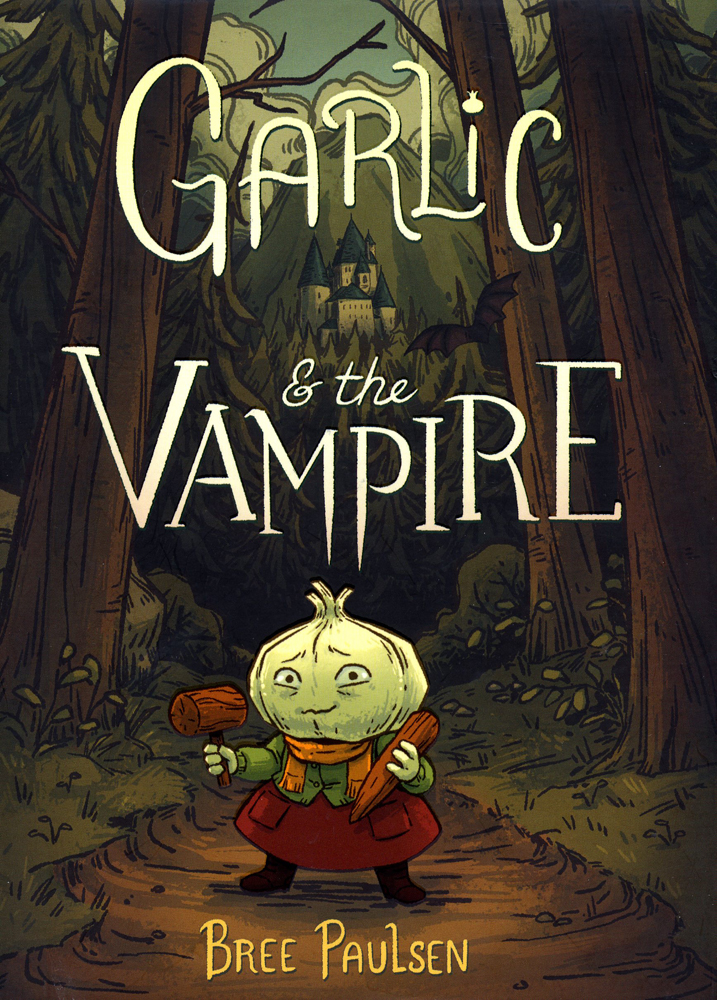
Since it is nearly Halloween, it seems appropriate to discuss a title that includes a vampire. This is a full-color graphic novel aimed at the upper elementary school level. A group of vegetables animated by a witch to help with the gardening and selling of vegetables has reached consciousness – they are aware of what they do and how it helps the townspeople. The have distinct personalities.
Their peaceful life is completely thrown when Potato notices smoke rising from the formerly abandoned castle across the valley. Could a vampire have moved in? All are in a worried state. At their meeting where they learn it is a vampire, thanks to the magic of the witch, Celery (who is miffed at Garlic) suggests Garlic should deal with him. It does make sense, vampires are known to be put off by garlic, but this Garlic is a quiet, nonthreatening creature and she trembles at the idea of confronting a vampire. Still, Garlic puts on a brave face and prepares for the mission. Readers will delight in the idea that at the last minute the witch assigned Celery to accompany her on the mission. Celery abandons Garlic at the castle door, immediately heading back home. Garlic bravely goes in, and finds something quite unexpected. Staking the vampire will not be necessary.
(The Nebraska Library Commission receives free copies of children’s and young adult books for review from a number of publishers. After review, the books are distributed free, via the Regional Library Systems, to Nebraska school and public libraries.)
Paulsen, Bree. Garlic & the Vampire. Quill Tree Books, 2021.
Friday Reads: The Road by Cormac McCarthy
“He thought the month was October but he wasnt sure. He hadnt kept a calendar for years …
He lowered the glasses and pulled down the cotton mask from his face.”
This is how Cormac McCarthy’s The Road begins.
It sounds familiar. It sounds relevant — timely; I was afraid, almost, that it would be too timely.
I’d read The Road before, years ago, and it easily became a favorite. Something about McCarthy’s prose is more akin to poetry, and that teetering, razor-edge brilliance of darkness not entirely lost to despair. This is a book whose memory of reading has haunted me through our own ever seeming dystopia; the world darkening through the corners like a vignette. And something beckoned me towards the book again; a glimmer of hope, survival.
This time, I chose the audiobook. Because this time, I was thinking about stories, and what will come next, and what came before: how stories were told without paper, how simple it seems to carry something that weighs nothing more than the air in your lungs. How stories might ask to be told again, in the future (a clock, time, is a great circle).
I’m a reluctant convert to audiobooks — my attention “span” is more of a blip these days, but I ended up listening while laying in bed, right before sleep. I’m sure this was partially responsible for some stressful dreams, but to be honest, they weren’t really any worse than normal.
The other trouble I have with audiobooks — the primary reason for my hesitation — is that I am so very picky about narrators. When I first played the recording of The Road, courtesy of my public library’s hoopla service, I almost backed out.
At first, hearing McCarthy’s words read instead of reading them was a jolt. McCarthy’s style is sparse — he eschews punctuation, dialogue tags, constructs sentences in short, sharp bursts. To hear it spoken out was so different than seeing it on the page; and yet, as I adjusted, listening ended up grounding the prose much more familiar terms. And, to be honest, it became enjoyable. When less engaged from the work of literature, I picked up on new dynamics of the story, new emotions; the narrator Tom Stechschulte, delineated the characters with excellent voices, and added a layer of closeness I don’t think I’d had to the story before. I’d originally enjoyed The Road because the language was gorgeous, and I like McCarthy’s style. I respected the human element, but I hadn’t connected to it. Having an actual person read the story — bring it to life, add dimension, did that for me in a way that hearing the story in the theater of my own mind wasn’t quite able to do. Near the midway point in the book, there’s a scene between the man and his wife — a terrible argument, about the horrors and reality of their future — that I felt was so well acted, and I was caught up in it, breathless.
The center of The Road is the man, and the boy — his son, his only son, and his legacy, and his only reason for living — unnamed and surviving the last gasps of a world ended on the road, trying to make it south, to the coast where the winter might be survived. On the surface, there’s really no reason to survive. Nothing is going to get better; in fact, in a world where cannibalism has become a fore-running dietary option, humanity made macabre ouroboros, it’s safe to say things are only going to get worse. Yet, call it foolish, call it stubbornness, call it humanity — the man and the boy keep going. Still they keep going, down the road.
I’ve always read that as the definition of hope, and now I’ve heard it, too.
McCarthy, Cormac. The Road. Narrated by Tom Stechschulte, Recorded Books, Inc., 2006. Audiobook.
Friday Reads The October Man, by Ben Aaronovitch, novella
The October Man, by Ben Aaronovitch is an offshoot of Aaronovitch’s The Rivers of London series, and perfect for the coming Halloween season. Set in the city of Trier, one of the few Roman conquered cities in Germany, this modern urban fantasy runs, KDA Polezei Tobias Winter, and local officer Vanessa Sommer, up and down hills, staircases, and steep vineyards in a puzzling magic and mythology-laden case.
Tobias is a member of the Abteilung Komplexe und diffuse Angelegenheiten (KDA)—Department of Complex and Diffuse Matters, a lovely, and vague way to say that his division looks into what it calls “infractions” –of a supernatural nature, often involving death. No aliens are involved, but, as in Aaronovitch’s other stories, a great many creatures from myth, plus, of course, river spirits. Tobias is the Director’s apprentice, just as Peter Grant of the Rivers of London Series, is an apprentice of the Nightingale. Vanessa Sommer is a Kriminalpolizei officer in Trier, specializing in crimes involving wine. As the story develops, she also has a budding talent for magic.
The mystery begins with a dead male body, covered with a fungus called Botrytis cinerea or Noble Rot (sometimes introduced to grapes to create a sweet wine, ) and not usually found on humans, much less as a cause of death. The body was dumped below a steep field of grapes, and above a river. The victim was a member of a club of mostly middle-aged men, who started with the quote from Johan Wolfgang von Goethe, “Life is too short to drink bad wine.” They begin by drinking good wine, but eventually branch out by beyond their comfort zones, taking classes, going to museums, going to live theatre. When the first death occurs, it was actually at the point of starting to voluntarily disband. Every member had improved his life and was happier in it. Tobias and Vanessa have to discover how magic is involved.
The owner of the vineyard is involved, as well. The Stracker family had a connection with the river below, the Kyll (or Kelly, as she prefers to be known when walking around town.) When Jacqueline Stracker inherited the vineyard from her grandfather, she returned from working in the wine country of California, and that may have started the supernatural activity. And when pressed about unusual activities, admits to following her grandfather one night when he made a “wine sacrifice” to the river, intending to steal the bottles. She was very surprised when a shining, nude woman walked out of the water and gave her a message for her grandfather, that the compact was broken. She never mentioned the incident to family.
Aaronovitch’s writing is addicting, his descriptions of the countryside and highways can be confusing, but add texture to his stories. His characters have depth. I’d like more stories about these two. It doesn’t hurt to have an interest or background in folklore and mythology, but it certainly not necessary. Just sit back and enjoy the ride.
The October Man, by Ben Aaronovitch, A Rivers of London Novella, Subterranean Press, ISBN 9781596069084, hard back. 208 pages.
Posted in Books & Reading
Tagged Ben Aaronovitch, Friday Reads, Horror, magic, Rivers of London series, urban fantasy
Leave a comment
Friday Reads: I Am Mr. Ellie Pooh by Dr. Karl Wald
This is the first time I’ve reviewed a coloring book. But it’s made out of elephant dung paper, so I couldn’t resist. Turns out when you wash the stinky poo part away from elephant dung, you get raw vegetation. I don’t want to know how they found this out.
After boiling the vegetation in a pressure cooker to kill bacteria, the end-result is mixed with post-consumer paper. From here, it’s smooth sailing. The paper can be made just like handmade paper: screen, press, and hang to dry. I used to make paper when I was in high school, so I was fascinated by elephant dung paper.
Now kids (and adults!) can color on paper that is 50% fiber from elephant dung and 50% recycled paper. The process was perfected by Dr. Karl Wald and his veterinarian friend on a trip to Sri Lanka. The book tells the story of how the paper is made, and how the book you are holding is saving elephants from angry farmers. You can read the story behind the story on the Mr. Ellie Pooh website. You can also see pictures of the paper-making process and how Mr. Ellie Pooh is creating jobs for local papermakers and artisans in the “About” section.
I got these coloring books for my niece and nephew for Christmas a couple years ago and they loved Mr. Ellie Pooh. Enough to grab Winnie the Pooh and declare, “Pooh is an elephant too!? There can be only one!” Then threw Winnie behind the couch. Poor bear.
At the time, I found the coloring books at Ten Thousand Villages in Lincoln. I’m not sure if they are still there, but they are also sold on the Mr. Ellie Pooh website. Apparently they have a bunch more stuff now too. I didn’t see the coloring book on Amazon, but the store does carry some items through Amazon as well. So if you’re looking for a new activity in the library, give Pooh a try.
Disclaimer: Pooh paper looks and smells just like regular paper. If I hadn’t read the stories and seen the pictures, I would have never known. That’s the power of pooh.
Friday Reads: “A Discovery of Witches” by Deborah Harkness

Have you ever read a book that reminds you of someone?
The novel “Discovery of Witches” by Deborah Harkness follows historian Diana Bishop as she researches science in the 15th and 16th centuries, more specifically manuscripts covering alchemy. Sounds boring, right?
During her work, Diana runs across one particular manuscript that just feels different. Literally! The book seems to sigh when she places her hand on it. Slightly spooked by the sigh, and what she finds within the volume, she sends it back to the bowels of the Oxford library where she has been working hoping to forget about it.
This seemingly insignificant moment sparks a journey for Diana across Europe, and eventually to her childhood home in New England, all the while trying to avoid witches, vampires, and other creatures, with the help of Matthew Clairmont, a fellow academic and a vampire. Oh, did I forget to mention that Diana is a witch? She’s been spending her entire life trying to forget that fact, too, leading to some interesting situations stemming from her out-of-control magic.
“Discovery of Witches” has recently been made into a series by AMC, causing the book series to have a resurgence. Deborah Harkness doesn’t waste a single word or phrase in this book and while a pretty hefty at nearly 600 pages I found this book really easy to read and enthralling. So much so, I’ve already purchased the rest of the series.
By now you’re probably curious about whom I’m reminded of when reading this book. I came across this book while spending an afternoon with my best friend, who just so happened to be heading off to Europe to teach at a university. The adventure, romance, and mystery of this novel will catch anyone’s interest but for me, the parallels to my own “Diana” made this read so much more enjoyable.
Harkness, Deborah. A Discovery of Witches. Penguin Books, 2011.
Friday Reads: All In: An Autobiography, by Billie Jean King
Forty-eight years ago, on September 20, 1973, 90 million people worldwide watched top women’s tennis player, Billie Jean King, 29, defeat former champion, Bobby Riggs, 55, in the Battle of the Sexes. I was eight and not a sports fan, but King has been on my radar, at least peripherally, ever since.
Just because you know a few facts about someone doesn’t mean you really know them, though, so it’s been a delight listening to King narrate her recently released autobiography, All In. It’s a long listen—18 hours—but King provides an engaging, enlightening account of her lifelong fight for equal treatment and pay for women in sports. And the fact that I don’t understand or particularly care about tennis didn’t inhibit my enjoyment of the book one bit!
One surprising takeaway is just how early King’s sensitivity to injustice and inequality, along with her commitment to rooting it out, kicked in. As an athletic, sports-loving girl growing up in the 1950s, King regularly ran up against gender-based stereotypes and restrictions. They ranged from being yanked from a photo of junior tennis tournament participants for wearing shorts instead of a skirt, to watching top teen boy tennis players getting comped for meals at the Los Angeles Tennis Club while she, a top teen girl, ate brown-bag lunches from home, to being told at 15 that she’d be good because she was ugly. “Even if you’re not a born activist, life can damn sure make you one,” she says of these early experiences.
Though young, King’s own run-ins with gender-based slights and limitations sensitized her to race-based discrimination as well. In 1955, while attending a championship tournament at the Los Angeles Country Club, she was particularly struck by “how white everything was.” She had what she describes as an epiphany:
I told myself that day that I would spend my life fighting for equal rights and opportunities for everyone, so no one felt scorned or left out. I believed our church’s teaching that I was put on this earth to do good with my life. Now I had a better idea what my calling could be: I could bring people together through tennis. If I was good enough and fortunate enough to be No. 1 in the world, tennis would be my platform.
King achieved number 1 ranking in the world for the first time in 1966 (she’d go on to achieve it five additional times) and she stayed true to her calling–leveraging personal success to fight for social change. All athletic champions feel pressure to stay at the top of their game, but for King the stakes were higher than personal glory: “Unless I was number 1, I wouldn’t be listened to,” she’s stated. And to me, learning more about these fights for equal rights, especially what went on behind the scenes, was the most interesting and inspiring aspect of the book.
Here are just a few of the fights you’ll learn more about if you tackle All In:
- In 1970, despite threats of suspension from the male-run tennis establishment, King, along with eight other women, signed $1 contracts with Gladys Heldman, publisher of World Tennis magazine, to create the first women’s pro tennis circuit.
- King campaigned vigorously for equal tournament prize money for women tennis players who were paid significantly less than their male peers—sometimes by a margin of eight to one. The U.S. Open was the first major tournament to offer pay equity, in 1973, after King threatened to boycott, but Wimbledon didn’t come around until 2007.
- When King started college in 1961 she’d already won her first Wimbledon championship, but no sports scholarships were forthcoming because she was a woman. Just over a decade later, King testified before Congress in support of Title IX. Passed in 1972, this legislation prohibited sex discrimination in all federally funded school programs, including sports. This meant schools had to start distributing athletic scholarship dollars equitably between male and female student athletes.
If you like inspiring reads that shows how much work goes into achieving incremental social progress, All In is definitely worth checking out!
King, Billie Jean, et al. All In: An Autobiography. Random House Audio, 2021.
Friday Reads: The Great Alone, by Kristin Hannah
I’m not sure why I haven’t read Kristin Hannah’s books until recently, but once discovered, I am completely hooked. So far, I’ve read four of her books, loved all of them, but especially The Great Alone. It kept my interest so completely that I stayed up late reading, and when I couldn’t read it, I was listening to the audio version. It’s that good.
Alaska, 1974. Unpredictable. Unforgiving. Untamed.
For a family in crisis, the ultimate test of survival.
Ernt Allbright, a former POW, comes home from the Vietnam war a changed and volatile man. When he loses yet another job, he makes an impulsive decision: He will move his family north, to Alaska, where they will live off the grid in America’s last true frontier. Thirteen-year-old Leni, a girl coming of age in a tumultuous time, caught in the riptide of her parents’ passionate, stormy relationship, dares to hope that a new land will lead to a better future for her family. She is desperate for a place to belong. Her mother, Cora, will do anything and go anywhere for the man she loves, even if means following him into the unknown.
At first, Alaska seems to be the answer to their prayers. In a wild, remote corner of the state, they find a fiercely independent community of strong men and even stronger women. The long, sunlit days and the generosity of the locals make up for the Allbrights’ lack of preparation and dwindling resources. But as winter approaches and darkness descends on Alaska, Ernt’s fragile mental state deteriorates and the family begins to fracture. Soon the perils outside pale in comparison to threats from within. In their small cabin, covered in snow, blanketed in 18 hours of night, Leni and her mother learn the terrible truth: They are on their own. In the wild, there is no one to save them but themselves.
In this unforgettable portrait of human frailty and resilience, Kristin Hannah reveals the indomitable character of the modern American pioneer and the spirit of a vanishing Alaska – a place of incomparable beauty and danger.
The Great Alone is a daring, beautiful, stay-up-all-night audiobook about love and loss, the fight for survival, and the wildness that lives in both man and nature. (Audible)
Friday Reads: Can I Give You a Squish? by Emily Neilson
Our two (and a half) year old recently discovered the delightful melodies of “Baby Shark” as performed by the Australian group Bounce Patrol, in multiple versions and complete with choreography, of course. Along with the adorable new dance moves, she’s been much more interested in anything with “fishies,” including books.
Can I Give You a Squish by Emily Neilson is an incredibly cute book about a little merboy and his fish friends. Kai is an enthusiastic hugger who loves to give squishes to his mama and to all of his underwater friends. After meeting a new little puffer fish though, he realizes not everyone likes hugs as much as he thought. With help from an octopus, a dolphin, and a crab, they all learn new ways of showing affection (and asking first), like fin bumps and tentacle shakes. The friends are all very encouraging and supportive of the scared puffer fish, and it’s a great way to start teaching young kids about boundaries and consent.
The illustrations in this book are lovely and it’s just a sweet story.
(She’s also really enjoying the Narwhal and Jelly books by Ben Clanton, if you need another good fishy book.)
With this squish book, I’ve been looking for some other picture books to start teaching or talking about consent/personal space:
- C is for Consent by Eleanor Morrison and Faye Orlove
- Don’t Touch My Hair! by Sharee Miller
- Will Ladybug Hug? by Hilary Leung
- Hands Off, Harry! by Rosemary Wells
Neilson, E. (2020) Can I Give You a Squish?
Friday Reads: The Perfume Thief by Timothy Schaffert
![The Perfume Thief: A Novel by [Timothy Schaffert]](https://m.media-amazon.com/images/I/51WuR6krS9L._SY346_.jpg)
I’m reading the new WWII novel, I’m reading the new perfume novel, I’m reading the new WWII perfume novel, and it’s delightful and I don’t want it to end.
I’ve been looking forward to reading The Perfume Thief by Timothy Schaffert, and it’s finally here! The publisher describes the book as “A Gentleman in Moscow meets Moulin Rouge.” I’m ready to follow Clementine, a raconteur in tailored suits, who’s spent her seventy plus years living life her way—while happening to break all of society’s rules. Now she’s facing a big change in her life—the Nazis are threatening to destroy Paris, including the vibrant underground scene she loves. It turns out she has some very exceptional skills, honed over decades of her refined and indecent life, that can help hand defeat to the Nazis. She just has to thread the needle carefully, with the finest silk, of course.
I imagine a few agents in Hollywood are getting calls about playing the part of Clem in the movie that must happen. I can see Helen Mirren and Meryl Streep fighting over the part, but I can see Jamie Lee Curtis owning it. Of course Cate Blanchett or Tilda Swinton, although they are a bit young for the part—isn’t that refreshing? Casting suggestions are welcome in the comments, of course. (Not just for Clem, but also for Zoe St. Angel, and also the villain, Oskar Voss.)
Did I mention Clem is from Nebraska? Did I mention Schaffert painstakingly researched Paris life, down to the weather reports on every day in the book? Did I mention it’s a page-turner? Excuse me while I get back to enjoying The Perfume Thief.
(We did write about The Perfume Thief here as well–yes, we’re fans! And yes, our Book Club Kit is available for Nebraska libraries to check out, and details are at that link.)
Schaffert, T. (2021). The Perfume Thief.
